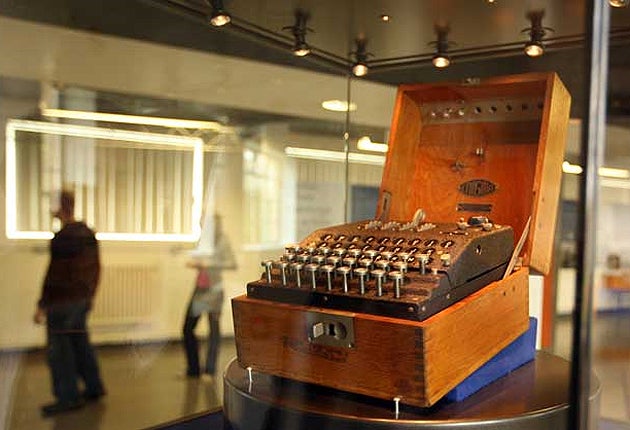Victory for <i>The Independent's </i>campaign to save Bletchley Park
English Heritage offers grant to preserve wartime code-breaking centre

Your support helps us to tell the story
From reproductive rights to climate change to Big Tech, The Independent is on the ground when the story is developing. Whether it's investigating the financials of Elon Musk's pro-Trump PAC or producing our latest documentary, 'The A Word', which shines a light on the American women fighting for reproductive rights, we know how important it is to parse out the facts from the messaging.
At such a critical moment in US history, we need reporters on the ground. Your donation allows us to keep sending journalists to speak to both sides of the story.
The Independent is trusted by Americans across the entire political spectrum. And unlike many other quality news outlets, we choose not to lock Americans out of our reporting and analysis with paywalls. We believe quality journalism should be available to everyone, paid for by those who can afford it.
Your support makes all the difference.The country mansion which was the centre of the greatest spy story in British history has been saved from dereliction following a campaign by The Independent.
The 17th-century building at Bletchley Park, where wartime code-breakers worked out how to read private messages between Hitler and his generals, has received a grant worth hundreds of thousands from English Heritage, enough to prevent the building from falling down. But a question mark still hangs over the future of other buildings on the site, which hold a unique place in wartime history.
The former country mansion, near Milton Keynes, has been under threat for years despite being a Grade II listedbuilding, because the trust that manages it ran out of money after spending £100,000 on repairing a small part of the damaged roof. Nearly 10,000 people worked in Bletchley Park during the war, in conditions of complete secrecy.
Because it continued to be used as a spy centre during the Cold War, they were not allowed to discuss their war work for 30 years after D-Day. "Bletchley Park is renowned globally for the achievements of its code-breakers in the Second World War and workers here made an enormous contribution in a whole range of spheres from mathematics to computing," said Andrew Brown of English Heritage. "It is our job to make sure this site is properly protected and interpreted for future generations."
Although the announcement will remove the immediate threat to the main building, it leaves a question mark over the wooden huts in the grounds. The huts are not beautiful, which is why they are not Grade II listed buildings, but they are where history was made. In August, The Independent launched a campaign to save the whole Bletchley site, including its outbuildings. A huge amount of the work that went into breaking the German codes was done in these huts, where people worked under such a strict discipline that they were forbidden any communication with employees in other huts, even if they were only a few feet away.
But unlike other major museums or historical sites, Bletchley Park is not funded by central government, but receives backing from various sources, including English Heritage and the Milton Keynes council. The trust had a major setback this year when its appeal for aid from the Bill and Melinda Gates Foundation was turned down.
The world's first working computer was designed and built at Bletchley because the mathematical calculations needed to decode Hitler's personal messages were too complex for the human brain. The hut that housed it has been torn down, but an exact replica of the machine can be seen in what was then an adjoining hut.
A document issued by English Heritage in the summer criticised the Government's failure to give the outbuildings at Bletchley a listing that would have protected them. It blamed the failure on "lack of an informed understanding of the character of the site, embedded into some unco-ordinated decisions being made about the future." Some huts have been preserved and are open to visitors, including the one which the mathematician Alan Turing used as an office. Others are in such a bad state that weeds and moss have taken over. But there was a hint yesterday that they may not be pulled down.
Bletchley's director, Simon Greenish, described the English Heritage grant as "a very significant step forward." He added: "It is solving probably the most difficult problem of the lot – the mansion. To get that solved means other things will be a lot easier to deal with."
Join our commenting forum
Join thought-provoking conversations, follow other Independent readers and see their replies
Comments